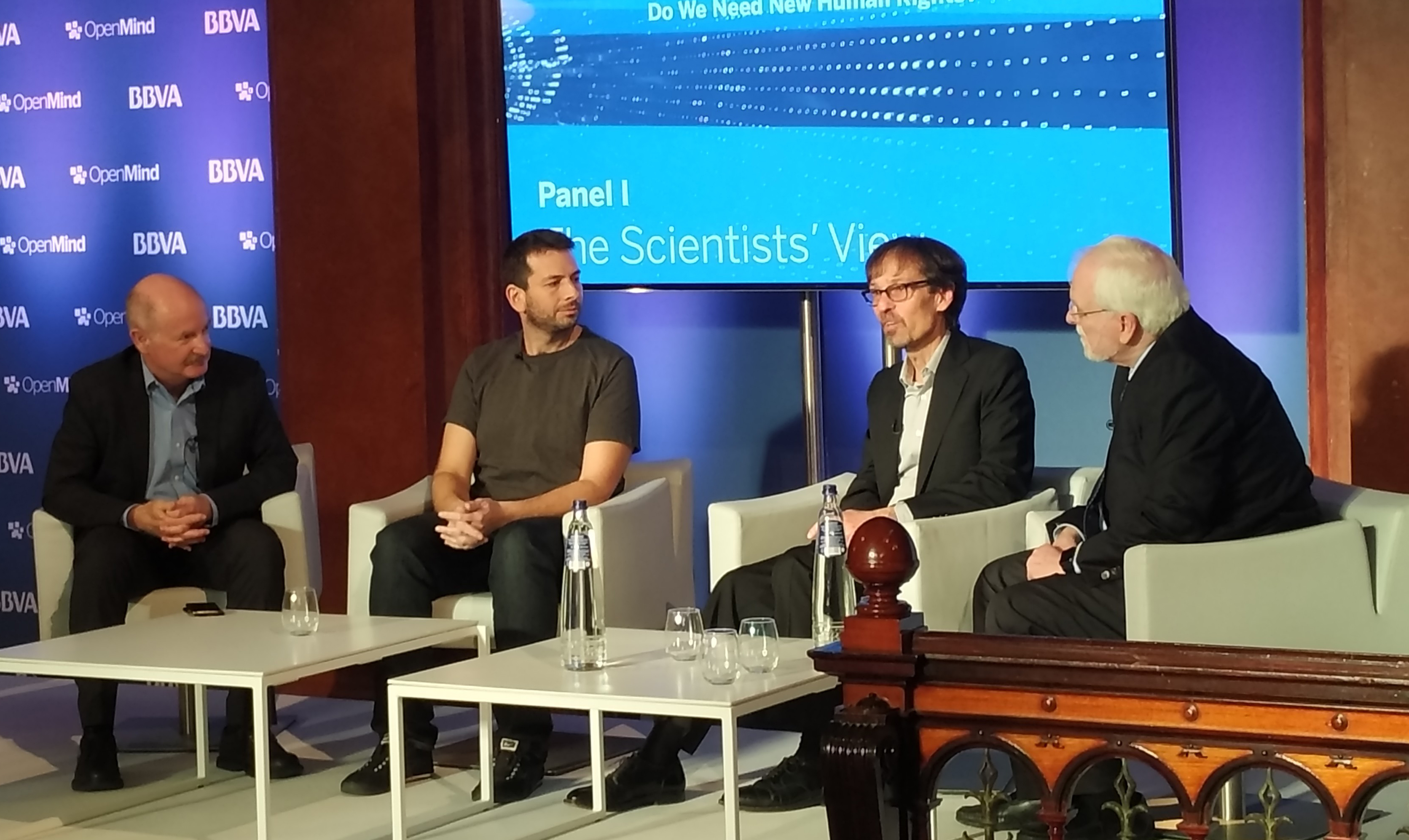Combining neurobiology and artificial intelligence has the potential to transform the reality that we know in all its forms, and the first thing that will change the partnership of these two technologies is the very concept of the individual: the days of the concept of self that we have used to organize current societies are numbered.
If neurotechnology will have the ability to modify short-term thoughts as maintained by Rafael Yuste, neurobiologist and main researcher of the BRAIN (Brain Research Through Advancing Innovative Neurotechnologies) project, where does my responsibility as an individual end? Who can declare me guilty of a crime or author of a novel if my mind is no longer an impenetrable place?

Although these arguments may seem apocalyptic and typical of the stories in the Black Mirror series, the reality is that scientists from different specialties who are already working with these technologies to “de-encrypt” the bases of brain activity, are urgently calling for an ethical framework to be defined to anticipate that scenario in which the mind ceases to be an “intimate” and ironclad place. The BRAIN project (2013) has 12 years to study the mechanisms of brain activity of different mammals, with the ultimate goal being the human being. After the laboratory, it will take about 10 to 15 years for these discoveries to be translated into a direct clinical application that modifies the limits of our health and living conditions.
“Neurorisks” and “neurorights”
But, faced with an ethical challenge of such magnitude, who has to define these new limits? In this new environment marked by these potential “neurorisks”, how will we defend our rights as individuals? Politicians, scientists and civil society itself must coordinate the reflection on this new scenario.
Some of the issues that require more urgent regulation are privacy and the potential risk of creating new social or “mental” inequalities, as far as brain study will allow, in addition to curing neurological diseases, to enhance certain skills by creating improved individuals, with more development adaptation options. If we’re able to “overtake” the natural evolution of the species, how will we guarantee equality among individuals?
Is the brain an enigma about to be deciphered?
The BRAIN (Brain Research Through Advancing Innovative Neurotechnologies) project has been working since 2013 on the ambitious goal of obtaining a complete picture, a detailed map, of brain activity. Each thought is translated into a certain brain activity circuit, as Rafael Yuste, the main driver of this interdisciplinary research effort within the US administration, explained to OpenMind but with an impact and scope that will undoubtedly be universal.
If we figure out those “routes”, we’ll be able to modify them to attack the origin of many mental and neurological illnesses that it is supposed, at some point on that journey, “get lost” and generate atypical brain activity. This would thus end decades of medical treatments that only manage to alleviate the effects of problems that continue to originate in brain activity and of which we remain ignorant.
Is humanism the key to the technological revolution?
This great step, man’s ability to understand how his body’s engine works and to “adjust it” if necessary, would allow humanity, according to Yuste, to close a circle, which began with the Renaissance and culminated in the final definition of the self, of the individual. Deciphering the brain will allow us, in addition to going beyond our own limits, to know ourselves as a species.
When this happens, when science and technology redefine the borders of our body and our actions, what role will the humanities play? When posed with this question, Rafael Yuste considers that, although it seems paradoxical in the eyes of many people, the humanities are a key issue in this scientific and technological revolution and they have a fundamental role: that of defining the new ethical and values universe that must direct this transgression of our own limits (and the values and rights associated with them).
Dory Gascueña for OpenMind
Comments on this publication